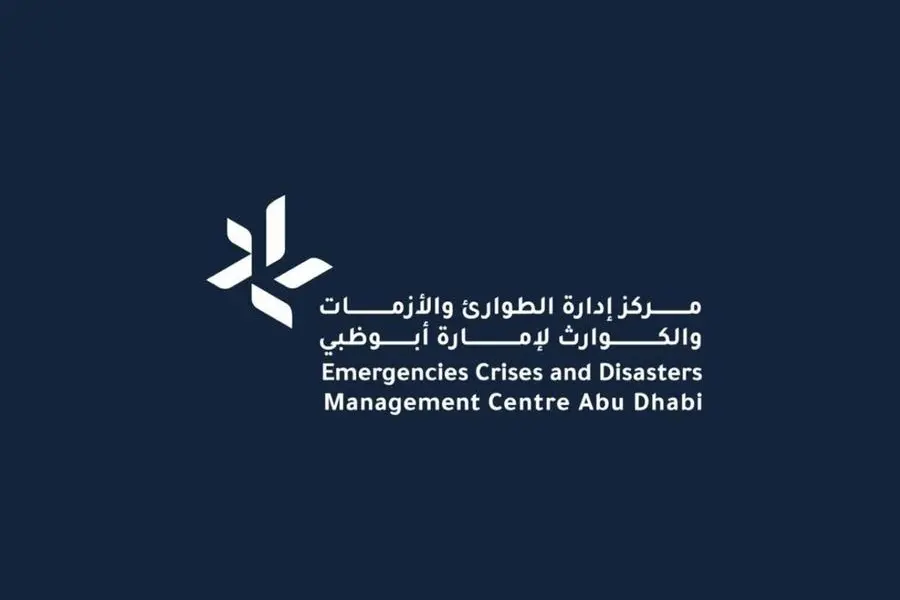PHOTO
- The research report, titled ‘Enhancing the Culture of Emergency, Crises, and Disaster Management for Government Personnel’ highlights the importance of adopting proactive approaches to foster a culture of emergency response within the government workforce
Abu Dhabi, UAE: The Emergencies, Crises and Disasters Management Centre - Abu Dhabi (ADCMC), in collaboration with the TRENDS Research and Advisory, released a comprehensive research report emphasising the significance of adopting strategies that enhance emergency preparedness and response capabilities among government employees. The report, titled ‘Enhancing the Culture of Emergency, Crises, and Disaster Management for Government Personnel,’ highlights the need for innovative strategies to boost the efficacy of response plans and improve the overall emergency management capability.
To identify innovative ways to strengthen readiness and improve responses to emergencies, crises, and disasters, the report explores how technology can radically contribute to this regard. It underscores the significance of raising awareness and providing comprehensive training for government employees in emergency, crisis, and disaster management. By enhancing the knowledge and skills of government personnel, the report suggests that it is possible to optimise response plans and improve overall emergency management. Additionally, it highlights the need for government entities to adopt a unique approach and implement effective strategies to achieve the desired level of response.
Mohamed Ahmed Khamis Al Mehairbi, Head of the Research Department at ADCMC, said: “This research report is in line with the directives and vision of the Abu Dhabi Government to position the Emirate as a leading global model in emergencies, crises, and disasters preparedness. Through this report, we aim to further enhance the Centre’s as well as the Emirate’s emergency response and management capabilities by offering the requisite knowledge and resources. We have developed this report in recognition of the critical importance of equipping government personnel with the essential expertise and skills to enhance government performance, as they form the first line of response during emergencies, crises and disasters.”
Al Mehairbi added: “We constantly work towards advancing studies and research while crafting essential policies and plans to proactively address and mitigate the impact of potential emergencies, crises, and disasters.”
The research report concludes with a set of findings that underscores the significance of cultivating a culture of preparedness for emergencies, crises, and disasters, to enhance community resilience. The report also listed key strategies to incorporate emergency, crisis, and disaster management principles, such as education, training, awareness-building, involving local communities in response plans, passing relevant laws to support these plans, and ensuring that organisations and community members communicate and coordinate effectively.
Additionally, the research report discusses the possibility of implementing innovative strategies to support information exchange, threat evaluation, and emergency, crisis, and disaster response plan creation. Social media platforms, smart applications for knowledge sharing, virtual reality technology, and educational serious games that combine entertainment and learning are all part of these strategies. These strategies are important for raising awareness of possible risks and providing appropriate actions for the best possible reaction.
The report further highlights the significance of providing training to all staff members in the emergency, crises, and disaster management field, equipping them with the relevant expertise to improve collaboration and coordination among organisations and stakeholders during crises. The report also outlines the need for response teams to have access to rapid and user-friendly communication means, as well as ongoing training on diverse emergency, crises, and disaster scenarios. Additionally, it emphasises how important it is to draw insights from previous experiences to further develop future response strategies.
The preparation of this report highlights ADCMC’s crucial role in empowering government personnel, particularly within the Centre’s workforce, to respond to varied types of emergencies, crises, and disasters. The report is a new addition to the Centre’s initiatives aimed at improving the Emirate’s preparedness to effectively respond to potential disasters and crises.
About ADCMC:
The Emergencies, Crises and Disasters Management Centre Abu Dhabi (ADCMC), established under Law No. 22 of 2019, issued by the late Sheikh Khalifa bin Zayed Al Nahyan, aims to significantly boost the Emirate’s preparedness for emergencies, crises and disasters.
The Centre has devised plans, strategies and policies for disaster, emergency and crises management. It carries out studies, field trips, audits and evaluations to ensure that organisations are prepared to face challenges and recover immediately. The Centre further focusses on improving coordination and knowledge exchange with relevant authorities and stakeholders. The key objective is to improve Abu Dhabi’s capabilities to effectively handle crises and emergencies.
Vision: Reinforcing crisis readiness.
Mission: We Strive to develop Abu Dhabi’s emergencies and crises management ecosystem through joint coordination to build and develop capabilities and leveraging leading technologies.
Strategic Priorities:
- Ensured readiness of Emirate of Abu Dhabi in emergencies and crises
- Strong stakeholders’ coordination and raising awareness
- Elevated ADCMC internal capabilities
Contact us:
For media inquiries: Coordination & Governmental Relations Section grc@adcmc.gov.ae
For Public inquiries: info@adcmc.gov.ae




















